#Cinematography Style Documentary
Explore tagged Tumblr posts
Text
I love all George Lucas SW films but man, TPM is such an odd film in so many ways
#i do miss the cinematography of gl sw#that distinct documentary style#all new sw movies look so damn generic#star wars
6 notes
·
View notes
Text
one thing i will say about bsg is that the camera work is sometimes so fucking funny
#Egg.txt#bsg liveblog#im talking specifically about the iconic zooms...#they kinda fuck for like when ships are suddenly appearing but like#when theyjust go RIGHT into someone's face it feels like an episode of the office#you know that type of documentary style filming or whatever? odnt ask me im not a freaking..#film guy#but like sometimes it works sometimesit just feels soooo ...off....#i get what theyre trying to go for but it just doesnt mesh for me i dont think#it reminds me of ehrmmm did anyone seeeee that video abt the cinematography in succession?#bc on the total flipside they got that kinda thing to rlly work for them i feel like it made sense there
3 notes
·
View notes
Text
Truly and honestly I didn't think I could be surprised by what Watcher can produce. My first video I ever watched of them was first episode of Ghost files and that felt like a lot of work put into it, the quality production was off the roof and when I watched it on youtube I was like "how is this a youtube video this should be an independent movie".
Now two years later watching the first episodes of Travel Season the feeling is similar. I am blown away by every detail every camera angle, every choice of wide shot of beautiful city that I've never been to, but it feels like I'm there walking with them and experiencing the food even though I'm only looking at it. You can feel love and dedication to the craft that Steven and Andrew have, and that they are genuinely having fun while doing this. This isn't even a food show, not really this is a high quality travel documentary and the moments saved in pictures only add to it. The 90's style sitcom intro, the photos taken by a real camera. The respect to the culture they have not only by bringing Brittney on their travels but also having people who live there who can explain the culture to us. Truly every detail is well thought out and that's what I love about Watcher. They really bring it their all to every show they make and because of the quality we can be awed by their skills of not only comedy, but also the cinematography and how natural it all feels. "Curiosity meets comedy" really rings true in this show. Travel season encapsulates everything I love about Watcher and I hope they will last forever and make a 100 seasons of this and other stuff they want to make.
I don't think they have it in them to make a better show than this but that's the same I thought when I first watched Ghost files. I hope to have this feeling of joy for every show they produce and I will be lucky enough to see.
Unironically, this really is the quality content I've come to expect from Watcher entertainment, but my expectations are exceeded. I hope to be awed everytime for years to come.
#watcher#travel season#whatever you hear about travel season it's better I can't even describe it#like i dont need them to revive www anymore and we all know how much i like www#longer post about watcher
77 notes
·
View notes
Text
It was a documentary, not a series, that's why we were not satisfied because we wanted fiction, not a docuseries.
youtube
This only solidifies my POV, which I have already gone over on the Under The Table Podcast and in many previous entries on my blog, about the whole problem with S3 being in the WR. Coming from a very solid S2 and amazing S1 award season, only made matters worse, of course.
Viewers appreciate realism, as a matter of fact the kind of audience The Bear appeals to is the kinda public that digs realism and adult content, with lots of cussing, raw directorial style, fast-paced, etc. We are not the typical rom-com or even drama series audience. The Bear became a hit show back in 2022 because its eps were fast-paced, with a dramedy quality that made it original, lots of adult language, and with a hint of sexual tension that was "promising" if explored in future seasons, that at that point were not confirmed yet. S2 was ordered in July 2022 in the middle of the momentum the show was starting to get, and shot from February to April 2023, then it premiered in June 2023, only to compete now, in this award season that opened a few weeks ago at the 76th Primetime Emmy Awards.
Meaning: the reason why S3 didn't work as expected, and the numbers back that up that is why they haven't released them yet, is because the writers were not able to write a BALANCED plot. Yes, it hit all the realistic marks in terms of mental health struggles and fine dining 7th circle of hell, but at the same time, it lost every other "ingredient" that it used to have. THERE IS A WAY to write the best of both worlds, and I certainly expected that coming from who I considered the best script writer out there, the sadist. And his right hand wired for romance, Miss Calo. They didn't do it. They disappointed me. They went all in with the docuseries' raw realism style of Carmy hitting rock bottom, which if you were really paying attention in S2 was nothing but PREDICTABLE → as I proved even before S3 premiered here and here but they didn't build towards a cliffhanger that left you wanting more, actually, 03X10 is altogether hard to watch, there's no balance like in FISHES 02x06, for instance, just one punch after the other, all below the belt, no comedy, no breather, just tragedy and more tragedy and more sense of doom and more PLEASE MAKE IT STOP! THAT'S IT, END THIS, PULL THE PLUG, STOP IT! etc... Like I said: No balance.
Storer only focused on Carmy's background story, but didn't give us anything we couldn't have figured out on our own anyway, he didn't explore Syd's background story, which should be a collection of gems and absolutely Sydcarmy friendly because the more we know about her, the better we will be able to figure out how will Sydcarmy happen and when (I already know when, but still) and he also focused on Tina's background story, IMO that was completely unnecessary as T is not a central character, what he showed there was also easy to guess anyway and could have been summarised in a couple of scenes, not an entire bottled episode, not when other characters are UNEXPLORED after 3 seasons. So basically, all the decisions made in terms of SCRIPT were WRONG. The acting was perfect, the direction was too, the soundtrack, the cinematography, all of it, but the foundation wasn't there because in the WR the creative decisions made for S3 were completely fucked up, we were served a docuseries as opposed to the fictional show with a realism bouquet we were watching the previous 2 seasons.
WE WANT TO WATCH FICTION, write it realistically, sure! BUT DON'T LOSE WHAT YOU HAVE SO FAR, DON'T MUTATE INTO A DOCUMENTARY OF ALL THAT'S WRONG IN THE MENTAL HEALTH DEPARTMENT OR IN SOCIETY OR IN THE CULINARY INDUSTRY, we already know that and if we don't, we can always tune in the motherfucking news, not FX, and certainly not Disney+. Thank you very much.
#what was wrong with the bear season 3#the bear#the bear season 3#gingerpovs#the bear fx#chris storer#joanna calo#sydcarmy#carmy berzatto#sydney adamu#the bear hulu#carmen berzatto#syd x carmen#fuck you storer!#under the table podcast#Youtube
24 notes
·
View notes
Text
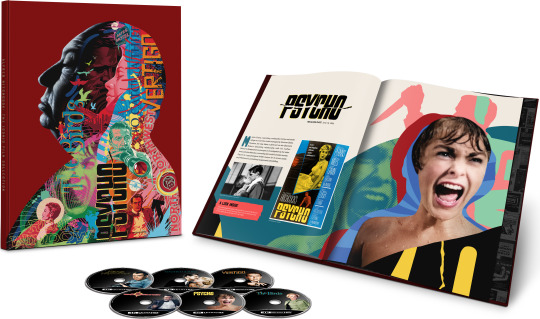
Alfred Hitchcock: The Iconic Film Collection will be released on November 26 via Universal. The 4K Ultra HD + Digital set collects six of the Master of Suspense's classic thrillers: Rear Window, To Catch a Thief, Vertigo, North By Northwest, Psycho, and The Birds.
Limited to 5,150, the six-disc collection is housed in premium book-style packaging featuring artwork by Tristan Eaton along with photos, bios, and trivia.
The uncut version of Psycho is included. Special features are detailed below.
1954's Rear Window is written by John Michael Hayes (To Catch a Thief), based on Cornell Woolrich’s 1942 short story "It Had to Be Murder." James Stewart, Grace Kelly, Wendell Corey, Thelma Ritter, and Raymond Burr star.
Rear Window special features:
Audio commentary by Hitchcock’s Rear Window: The Well-Made Film author John Fawell
Rear Window Ethics - 2000 documentary
Conversation with Screenwriter John Michael Hayes
Pure Cinema: Through the Eyes of The Master
Breaking Barriers: The Sound of Hitchcock
Masters of Cinema
Hitchcock/Truffaut - Audio recording from filmmaker François Truffaut’s in-depth interview with director Alfred Hitchcock about Rear Window
Production photo gallery
Theatrical trailer
Re-release trailer narrated by James Stewart
A wheelchair-bound photographer spies on his neighbors from his apartment window and becomes convinced one of them has committed murder.
1955's To Catch a Thief is written by John Michael Hayes (Rear Window), based on David Dodge’s 1952 novel of the same name. Cary Grant, Grace Kelly, Jessie Royce Landis, and John Williams star.
To Catch a Thief special features:
Audio commentary by Hitchcock historian Dr. Drew Casper
Filmmaker Focus: Leonard Maltin on To Catch a Thief
Behind the Gates: Cary Grant and Grace Kelly
A retired jewel thief sets out to prove his innocence after being suspected of returning to his former occupation.
1958's Vertigo is written by Alec Coppel (No Highway in the Sky) and Samuel A. Taylor (Sabrina), based on Boileau-Narcejac’s 1954 novel The Living and the Dead. James Stewart, Kim Novak, Barbara Bel Geddes, Tom Helmore, and Henry Jones star.
Vertigo special features:
Audio commentary by filmmaker William Friedkin (The Exorcist)
Obsessed with Vertigo: New Life for Hitchcock’s Masterpiece
Partners In Crime: Hitchcock’s Collaborators
Saul Bass: Title Champ
Edith Head: Dressing the Master’s Movies
Bernard Herrmann: Hitchcock’s Maestro
Alma: The Master’s Muse
Foreign censorship ending
100 Years of Universal: The Lew Wasserman Era
Hitchcock/Truffaut - Audio recording from filmmaker François Truffaut’s in-depth interview with director Alfred Hitchcock about Vertigo
Theatrical trailer
Restoration theatrical trailer
A former police detective juggles wrestling with his personal demons and becoming obsessed with a hauntingly beautiful woman.
1959's North by Northwest is written by Ernest Lehman (The Sound of Music, West Side Story). Cary Grant, Eva Marie Saint, James Mason, and Jessie Royce Landis star.
North by Northwest special features:
Audio commentary by writer Ernest Lehman
North by Northwest: Cinematography, Score, and the Art of the Edit
Destination Hitchcock: The Making of North by Northwest
The Master’s Touch: Hitchcock’s Signature Style
North by Northwest: One for the Ages
A Guided Tour with Alfred Hitchcock
A New York City advertising executive goes on the run after being mistaken for a government agent by a group of foreign spies, and falls for a woman whose loyalties he begins to doubt.
1960's Psycho is written by Joseph Stefano (The Outer Limits), based on Robert Bloch’s 1959 novel of the same name. Anthony Perkins, Vera Miles, John Gavin, Martin Balsam, John McIntire, and Janet Leigh star.
Psycho special features:
Original uncut and standard re-releases version of the film
The Making of Psycho
The Making of Psycho audio commentary with Alfred Hitchcock and The Making of Psycho author Stephen Rebello
Psycho Sound
In The Master’s Shadow: Hitchcock’s Legacy
Newsreel Footage: The Release of Psycho
The Shower Scene: With and Without Music
The Shower Sequence: Storyboards by Saul Bass
The Psycho Archives
Hitchcock/Truffaut - Audio recording from filmmaker François Truffaut’s in-depth interview with director Alfred Hitchcock about Psycho
Posters and ad gallery
Lobby card gallery
Behind-the-scenes photo gallery
Production photo gallery
Psycho theatrical trailers
Psycho re-release trailer
A secretary on the run for embezzlement takes refuge at a secluded motel owned by a repressed man and his overbearing mother.
1963's The Birds is written by Evan Hunter (High and Low), based on Daphne du Maurier’s 1952 short story of the same name. Tippi Hedren, Rod Taylor, Jessica Tandy, Suzanne Pleshette, and Veronica Cartwright star.
The Birds special features:
The Birds: Hitchcock’s Monster Movie
All About The Birds
Original ending
Deleted scene
Tippi Hedren’s screen test
The Birds is coming (Universal International Newsreel)
Suspense Story: National Press Club hears Hitchcock (Universal International Newsreel)
100 Years of Universal: Restoring the Classics
100 Years of Universal: The Lot
Hitchcock/Truffaut - Audio recording from filmmaker François Truffaut’s in-depth interview with director Alfred Hitchcock about Vertigo
Theatrical trailer
A wealthy San Francisco socialite pursues a potential boyfriend to a small Northern California town that slowly takes a turn for the bizarre when birds of all kinds suddenly begin to attack people.
Pre-order Alfred Hitchcock: The Iconic Film Collection.
#alfred hitchcock#Rear Window#Vertigo#North By Northwest#Psycho#The Birds#To Catch a Thief#dvd#gift#cary grant#james stewart#anthony perkins#tippi hedren#janet leigh#Tristan Eaton
19 notes
·
View notes
Note
At what point do you ask yourself if the Prequels did this to itself.
Sure having Gen X creatives probably doesn’t help. But I still see a lot of younger folks and prequel kids have a “the Jedi we’re wrong” narrative. We can argue whether or not it’s because of those Gen X creators sure.
But a film or film needs to speak for itself and convey the ideas of the creative and not have people research what he or she says. It can be fun sure but at some point the film needs to do the work.
Course if you think the film does the work that also is a debate worth having. But the fact that we still have this debate at all must say something and I don’t it’s simple as “older fans don’t get it” maybe that’s part of it but I still think there is something about the prequel’s execution to be desired.
Guessing you're the same anon from this post.
It's not as simple as "older fans don't get it", but that is the starting point of the issue, because the older fans are the ones who generated the content that the Prequel kids would go on consuming.
And you can see a trend in all Star Wars merchandise. Around 1999 to 2005? The marketing, the books, the comics, all tend to frame the Jedi in a positive light, but more importantly focus on the intended narrative, that Anakin brought this down on himself.
And the haters, well, they're arguing that the Jedi are a bunch of idiots and incompetents, that Anakin is whiny and changes his mind and joins the Dark Side to kill the Jedi on a whim.
These are very uncharitable reads but at least they track with the intended narrative.
The Jedi are always playing catch-up, calling them "incompetent" is tough but fair.
Anakin is whiny, arrogant and petulant but he's a teenager. That's how they are. That's the point: he's a teenager and he's trying to get married and settle down and have a family, etc, "because i love her and she loves me" when even the woman he's in love with tells him "that's not how things work, buddy, there's other factors, this will spell out destruction for everyone". Eventually she gives in, but that doesn't make it any less destructive.
Anakin does turn to the Dark Side immediately. That's how scared he is. That's how traumatized he is. He hasn't slept in days and he's not thinking straight, he's scared shitless and he's panicking and here's this space sorcerer who says he can stop people from fucking dying?? Of course he'll join.
But the other thing is... those are criticisms coming from an adult perspective. AKA not the intended viewer. Cuz I sure wasn't thinking any of that when I was a kid. I was deep in the story and going along with it. I have a friend whose kid watched the films first, same deal, he's not asking that.
These are movies meant for kids. Is the plot slightly more complex than your average fairy tale? It is. But it remains a fairy tale in, especially considering its target demographic.
And this fairy tale was made by an experimental indie filmmaker from the Baby Boomer generation with a background in anthropology (hence why there's so many mythological callbacks in the films), cinema vérité documentary filmmaking (explaining the cinematography of the Prequels) and editing.
It reflects who he is and what his values are. He's ahead of the curb in his way of thinking, but some of his values reflect the generation he was a part of.
Finally, the films reflect a particular style he's emulating, the 30s matinee serial. Everyone speaks a certain way, sometimes it's bland, sometimes it's straight up corny, but it's all on purpose.
These films kept being scrutinized by people who saw them as "blockbuster scifi films" and reviewed/analyzed them as such.
They're not. They're indie movies with a big budget. They're fairy tales in space.
They're this weird little niche thing that this funny weirdo from Modesto with a fascination for pyschological motifs in mythology came up with. Remember: the first Star Wars movie was released with an expectation from everyone, including Lucas himself, that it'd be panned and despised.
As they years go on, a lot of the adults who hated the Prequels try to do the decent thing and find a way to like them... but the story seems so stupid to them, as it is.
But then they either think or come across an interpretation, a prism through which to see the Prequels... that - holy shit - actually makes them better, and have more depth. The theory is...
What if Jar Jar is secretly a Sith Lord?
What if the Prequel Jedi are meant to come across as dispassionate? I mean, isn’t that what being a Jedi is, apparently? You purge yourself of attachments aka emotions, and act only logically.
Wow, that… that actually makes the Prequels sound better. Like, think of the implications:
The Jedi are too systemic, they’re more prone to violence than they’re supposed to be, they’re meddling with politics, and if you read the EU, they’re essentially kidnapping babies, brainwashing them, indoctrinating them, and if they don’t pass the tests then they become farmers or get kicked out. They’re high and mighty assholes who preach peace but also frequently get into fights. Also, to become a Jedi, you need to have a high enough midi-chlorian count which shows how overly-organized they’ve become, rather than allowing themselves to ‘feel’.
Qui-Gon is not just a maverick: he’s ahead of the curb. I mean, he’s the first guy to become a Force Ghost, he’s gotta be doing something right that the others aren’t, right? Also, he’s got a love interest, he gets angry when she gets killed. Y’know, a human reaction? Like the one Anakin has and tells himself he needs to repress, like a Jedi apparently would?
And you know what? Maybe that’s the problem that makes Anakin go to the Dark Side: these guys took a 9-year-old slave and forced him to repress his emotions until he finally cracked. He just wouldn’t fit in the mold, they kept pushing, until he finally broke. Sure, Palpatine leverages Padmé’s life, but Anakin would never have been in that situation if the Jedi had been compassionate enough to notice he was in pain and distress. Yoda literally tells him to “rejoice” at the thought of someone dying. What kind of idiotic advice is that? It’s clear, the Jedi are no better than the Sith, they’re just two sides of a different coin. One feels too much, the other doesn’t feel at all.
Holy shit… this is all making so much sense…! The Prequels might actually be secretly good! Or if not good, at least more coherent, now!
And oh! Oh! That’s what makes Luke special! Cuz yes, Luke is special again, thanks to this interpretation!
He finds a middle ground between the unfeeling Jedi and the Sith, who have become slaves to their emotions. He uses the Dark Side to beat Vader, but uses it like a tool, keeps himself in control (like some sort of Jedi in the middle... like… a gray… Jedi). Like, sure, Anakin can be the Chosen One, whatever, but Luke? Luke has found the balance, he succeeded where Obi-Wan, Yoda (who wanted Vader dead instead of believing he could be redeemed) and the other Prequel Jedi failed. And the EU books that follow Return of the Jedi seem to confirm this, as you can get married within the New Jedi Order, and Luke can use Force Lightning and he can take on an army of Yuhzan Vong by himself!
Wow. You know what? For all their faults, the Prequels make sense. Maybe Lucas is a genius after all.
Some of the people are in a position where they can create new Star Wars content. So they set out to fix something that, in their view, was broken... but that from Lucas' POV, wasn't. Some of them think they're setting out to clarify a narrative (but are actually focusing on an aspect that wasn't meant to be scrutinized and challenged that deeply in the intended narrative).
And they crank out this content, because Lucas didn't particularly give a fuck about the EU. When they have the chance, they push the new narrative, and nobody stops it because, hey, at least they're engaging with the material, and the original narrative was stupid anyway.
What happens? The Prequel kids grow up with this content being pushed on them more and more.
And they're immersed, right? So when a new book makes Obi-Wan come across as an asshole, they don't think "Obi-Wan would never say that" they go "oh shit, turns out Obi-Wan's an asshole!"
So now THAT generation, that's just going by the canon that was put out post-movies, is slowly but surely growing up with the same interpretation (me included).
There's also a more psychology-aware culture, and more and more Anakin comes across as someone who's being mentally abused by the Jedi. He's got some sort of mental disorder, he's socially anxious. He's not whiny, he's crying out for help. Those values of the Jedi (that Lucas shares)? They're actually weird and archaic!
So that whole aspect gets thrown into the mix.
Fast-forward to today, and the newest generation of fans grows up with "the Prequels show the Fall of the Jedi" as common knowledge, and the High Republic, New Jedi Order and Dawn of the Jedi is where it's at. Those Prequel Jedi are real dogmatic, tight-assed fuck-ups, wow, amirite?
TLDR:
No, I don't think the Prequel Trilogy did it to itself. I think it accomplished exactly what it wanted to for the people it was meant to do it for (kids).
It's just that a bunch of people came right after it and retconned the fuck out of it, then proceeded to say "yeah, it was always this way, even the original author said so" when he didn't.
My stance, as usual, is best summarized by this metaphor:
112 notes
·
View notes
Text
Top 10 horror movies from the 70's

The 1970s was a pivotal decade for horror films, characterized by innovative storytelling, groundbreaking special effects, and a willingness to tackle social issues. Here are ten notable horror movies from that era:
The Exorcist (1973) Directed by William Friedkin, this film follows the harrowing possession of a young girl and the desperate attempts of her mother and two priests to save her. Its shocking imagery and intense themes of faith and evil made it a cultural phenomenon.
Texas Chain Saw Massacre (1974) Tobe Hooper's chilling tale of a group of friends who encounter a family of cannibals in rural Texas set the standard for slasher films. Its raw, documentary-style cinematography and minimalist approach to horror left a lasting impact on the genre.
Halloween (1978) Directed by John Carpenter, this film introduced audiences to Michael Myers, a masked killer who escapes from a mental institution to stalk babysitters on Halloween night. Its use of suspense, iconic score, and the "final girl" trope reshaped horror for decades.
Let's Scare Jessica to Death (1971), directed by John Hancock. This psychological horror film tells the story of Jessica, a young woman recently released from a mental institution. She and her husband move to a secluded farmhouse in rural New England, hoping to start anew.
The Omen (1976) Directed by Richard Donner, this film revolves around a couple who unknowingly adopt the Antichrist. The atmospheric score and unsettling narrative explore themes of fate and evil, making it a classic of supernatural horror.
Carrie (1976) Based on Stephen King's novel and directed by Brian De Palma, "Carrie" tells the story of a high school girl with telekinetic powers who seeks revenge on her tormentors. The film's themes of bullying and isolation are as impactful as its shocking climax.
Jaws (1975) Steven Spielberg's thriller about a great white shark terrorizing a beach town became a blockbuster hit and redefined the horror genre. Its combination of suspense, adventure, and iconic score made it a template for future thrillers.
Suspiria (1977) Directed by Dario Argento, this Italian horror film is known for its stunning visuals and a haunting score by Goblin. It follows a ballet student who uncovers a supernatural conspiracy at a dance academy, blending psychological horror with giallo elements.
Don't Look Now (1973) Directed by Nicolas Roeg, this haunting film explores grief and loss as a couple travels to Venice after the death of their daughter. The eerie atmosphere and surreal imagery contribute to its psychological horror and emotional depth.
Invasion of the Body Snatchers (1978) Philip Kaufman's remake of the 1956 classic delves into themes of identity and paranoia as alien pods replace humans with emotionless duplicates. Its commentary on conformity and societal fear resonated with audiences during a time of upheaval.
These films not only scared audiences but also pushed the boundaries of storytelling, paving the way for future horror cinema.
9 notes
·
View notes
Text
i absolutely adored old stone (2016). beautifully presenting china’s sixth generation’s fusion of neo-neorealism, neo-noir, and the surreal, the film follows a taxi driver whose good samaritan act leaves him caught in a web of culpability that ultimately unravels his life and his mind. the film draws from the xu shoulan v peng yu case and the death of wang yue, both highly publicized cases that developed a cultural narrative in china and abroad that helping an injured party, even one in dire and obvious need, constitutes too high a legal risk for most people to dare chancing. this film does a beautiful job balancing its scathing view of bureaucracy and corruption and its gradually developing psychological tension, with the former element highlighted in its highly naturalistic dialogue, the latter in its orchestral score—unusual for the genre—and both effectively developed through its masterfully versatile cinematography. although the ending reads as slightly trite on paper, the driving emotion of a film that begins with an almost documentary-like realism and gradually trades handheld shots for crane shots as it slides into fairytale-like violence all culminates in an ending shot that hit me, if you will pardon the expression, like a truck. old stone (2016) is a hugely effective film and a stunning debut, joining the likes of keep cool (1997) and a touch of sin (2013) with both style and impact, and i would highly, highly recommend it
10 notes
·
View notes
Text
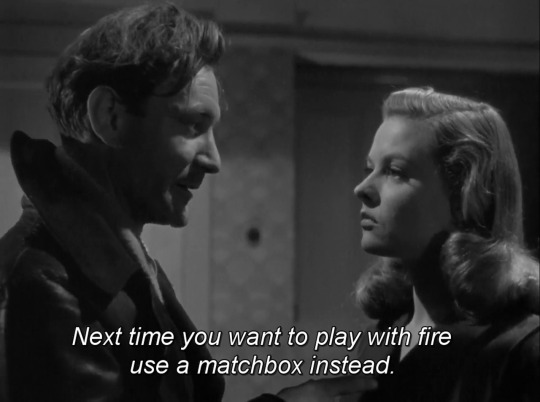
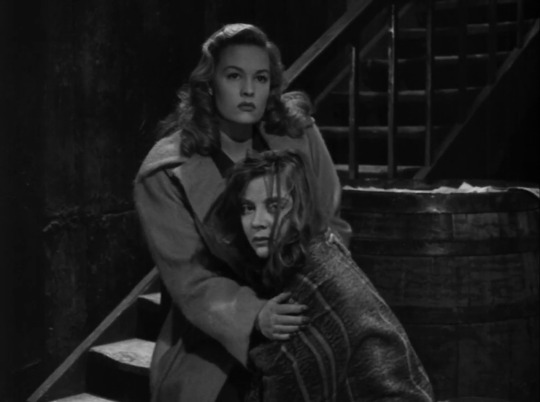
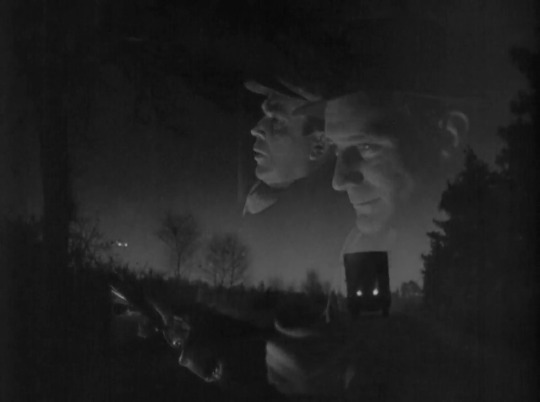
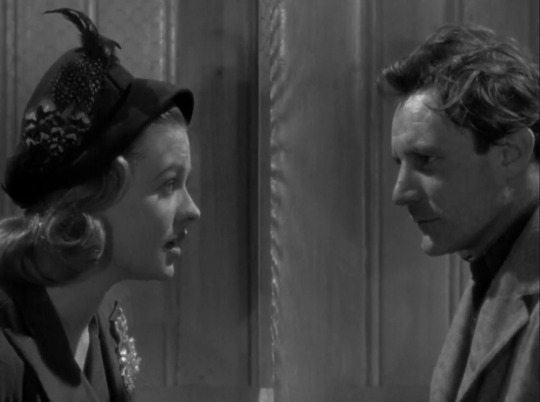
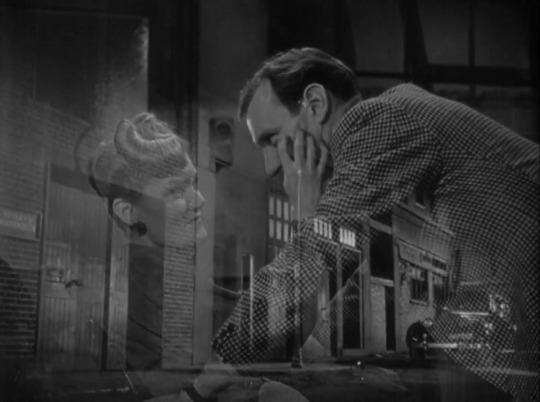
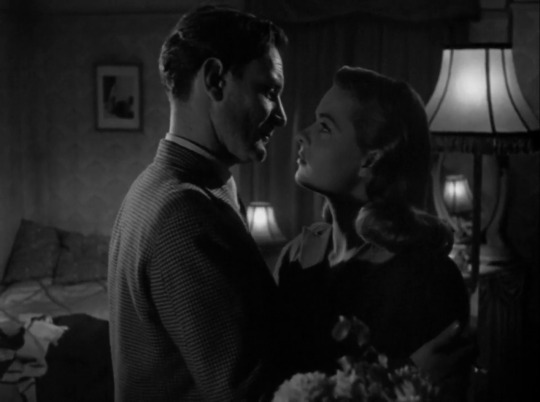
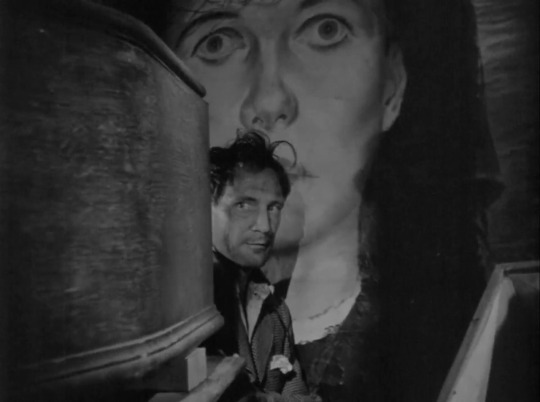
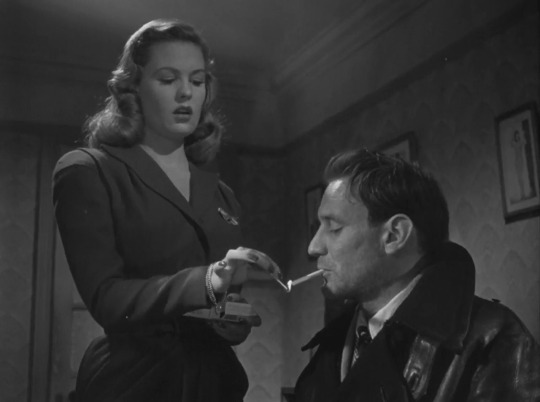
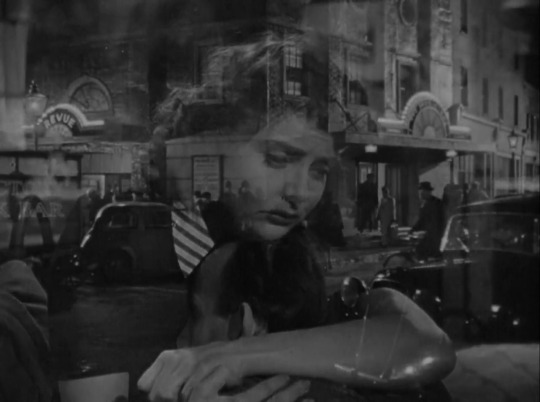
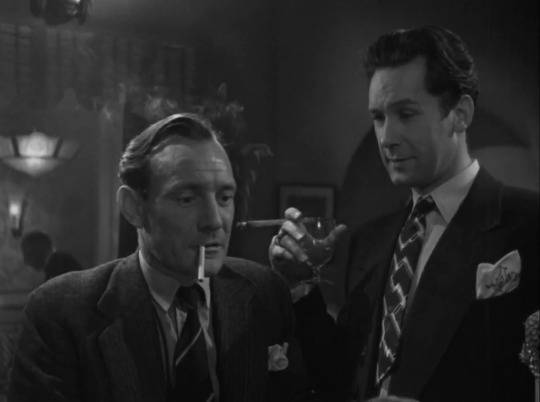
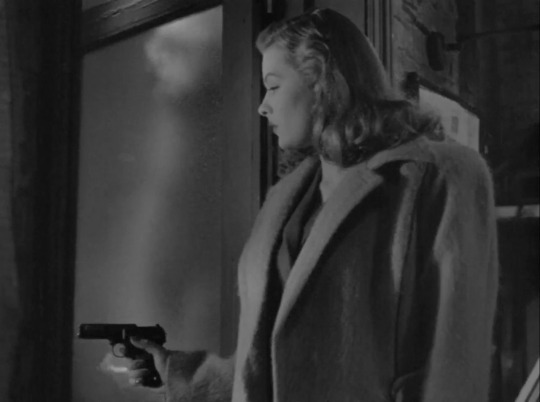
They Made Me a Fugitive (also known as They Made Me a Criminal; U.S. title: I Became a Criminal) is a 1947 British film noir directed by Alberto Cavalcanti and starring Sally Gray and Trevor Howard. It was written by Noel Langley, based on the 1941 Jackson Budd novel A Convict Has Escaped. Cinematography was by Otto Heller.
“I loved They Made Me a Fugitive," says director Wes Anderson. "The grittiness and the style and the great, great dialogue. It’s very good, and very hard. The violence of the language is much more blunt than you’d ever expect. Trevor Howard is great".
"Another thing that intrigued me about They Made Me a Fugitive was that it always seemed like it was going to veer into pure expressionism," says Anderson. "That expressionist current of feeling combines with the location shooting and the type of story being told, the rawness of it all, to give the movie a documentary-ish flavor. It’s a strange combination. And the dialogue is so graphic and blunt. It’s not just hard-boiled, it’s kind of funny, and I think they meant it to be?”
#film noir#They Made Me a Fugitive#1940s#They Made Me a Criminal#Alberto Cavalcanti#Cavalcanti#Sally Gray#trevor howard#wes anderson
11 notes
·
View notes
Text

There's a sort of Wes Anderson-y energy to Hideaki Anno's live action movies. Something about the mix of retro nostalgic vibes with sorta blunt documentary-style cinematography.
36 notes
·
View notes
Note
I want your ranking on every Boyd movie/show you've watched pleas (I tried getting into narcos and couldn't for the life of me)
Awww I’m sorry you couldn’t get into Narcos!! I’m actually a big fan of Narcos, but I totally get it’s not for everyone (helps I’m a massive Pascal slut too!)
Here’s how I’d personally rank the Boyd media I’ve seen!!
Vengeance (this one is actually my all-time favorite movie! I just love it so much and can always rewatch it. Adore everything about it, and Holbrook is ofc great!)
Sandman (ahhh so fun! Rose, Calliope, and Corinthian are some of my favorite characters, and just the entire show is such a delight)
Logan (sad but GORGEOUS, and Donald Pierce is my absolute favorite Holbrook character)
Narcos (I love the magical realism documentary style this was done in, and I love Pascal and Holbrook’s chemistry!)
Gone Girl (genuinely good film, even if Holbrook is only there for like, two scenes)
In the Shadow of the Moon (fucked up and dark, Holbrook getting progressively grosser and crazier was hot)
The Predator (not a good movie, but did a server rewatch recently with Quinn McKenna autism HC in mind and had a really good time! Him and Nebraska are so gay for each other too, it’s great)
Justified: City Primeval (I’ll be honest, haven’t seen the entirety of this all the way through, and that’s partially cuz it just didn’t hook me. But Holbrook turns in a very watchable performance)
The Host (Kyle O’Shea is actually a really fun character! This movie is not as bad as I had remembered either)
Dial of Destiny (I watched this drunk and almost fell asleep in theaters. Bad movie. Holbrook was fun)
The Cursed (Holbrook seems afraid that if he emotes too much he’ll lose whatever tentative control he has over his terrible British accent. Also, pretty cool werewolf concept, really good horror cinematography, but… that’s it)
Beckett (JDW’s character telling Holbrook’s character he doesn’t deserve his pretty face is the only redeemable moment in this movie. Well. That and JDW is *very* pretty and goes through a million gorgeously acted panic attacks. This movie didn’t deserve the actors it got)
10 notes
·
View notes
Text
Gender Me: Homofili og Islam (2008)

Director - Nefise Özkal Lorentzen
Writer - Nefise Özkal Lorentzen
Producer - Jorgen Lorentzen
Cinematography - Nefise Özkal,Nils Petter Lotherington,Cengiz Tanc
Animation - Morten Haslerud, Simon M. Valentine
Editor - Mette Cheng Munthe-Kaas
Sound Design - Håkon Lammetun
Cast - Mansour Saberi,Emre,Kerem, Daayiee Abdullah,Tigran,Huseyin,Kaltham, etc
Duration - 51 minutes
Languages - Turkish,Norwegian,Arabic
Year of release - 16 January, 2008
Gender Me: Homosexuality & Islam (also known as,Gender Me: Homofili og Islam ) is a documentary film directed by Turkish Norwegian filmmaker Nefise Özkal.The film was shot in Turkey and Norway.Gender Me is a part of ''A Trilogy On Gender And Islam (BLU-RAY)''
Gender Me featured an openly Gay Imam Daayiee Abdullah for turkish audiences.
Synopsis
Gender Me: Homosexuality and Islam is a road movie about a gay muslim's personal voyage into the world of full of taboos. Mansour is the central character of this film.Mansour is a Iranian gay refugee; He has been living in Oslo for 18 years.Now he wants to travel back to Istanbul, where he lived 2 years before he was granted asylum in Norway.He searches the question of faith and gender in Islam & he wants to collect the unusual stories of gay muslims.As the film unrolls, Mansour meets a range of complex individuals (who identifies them as gay & muslim).Therefore, the film language uses an experimental style,which dramatizes the dreams of the informants or the verses of Koran.It shows the ambiguity of Mansour & his inner conflict.
The film interviewed Imam Daayiee Abdullah, an openly LGBTQ+ Imam, who interprets the Koran through a different point of view;Throughout his youth,Mansour suffered from being and feeling different.He even thought that he was born with bad luck because he is a gay. Even though he is a well-established young man living in Oslo,Norway.But he cannot get rid of his former angst and shame.In the Koran there is a story that defines Islam as a religion of change, tolerance and love. It is exactly because of this text that Mansour's road movie first starts.Where should he travel to find the real Islam that he has been away from for many years? He finds many names, many web-addresses & many intellectuals who dare to interpret the Koran from a gender perspective.He has heard a lot about bitterness! In other terms, Mansour is a dream-catcher.He is like Graham in Sex, Lies and Videotapes.He wants to collect histories of other queers with an Islamic background.
21 notes
·
View notes
Text
Have movies changed dramatically since 1965? (Film Final) By Jacob Christopher

Film has evolved a lot since the 60s, however if one aspect of film’s history stayed true to itself it’s the new wave’s capability to avert expectations and challenge the norms of cinema. Movies have always been dynamic since it’s early predecessors of studio movies, however the birth of New Wave cinema is the years of the 1950s and early 60s emerging as the French New Wave, grabbed the narrative and placed it within the hands of the director. Such as an author to a book, the vision of a film should be the personal reflection of a individual’s story.
Where many characteristics that may be observed in the production are smaller budgets and unconventional cinematography choices. Along with the innovative directors such as Agnes Verada, Francois Truffaut and the director of A Bout De Souffle, Jean Luc Goddard. The idea became popular, for a director using their camera as a writer’s pen is seen exemplified in the handheld techniques instrumented in their film. Presenting more of a documentary-like form of filming, utilizing as much natural lighting as possible, as well as the following of characters on screen. Many of the innovations within this period are still seen throughout many of the directing choices utilized in modern independent films.
The Impact of New Wave Cinema
France emerged from World War II in the 1960s, rebuilding the country physically and the nation's national identity through the French Fifth Republic. Under the leadership of President Charles de Gaulle. New Wave Cinema, or "Nouvelle Vague," emerged in France in the late 1950s and 1960s, revolutionizing the film industry with its innovative techniques and storytelling. This movement was characterized by smaller budgets, unconventional cinematography, and innovative narrative structures that challenge traditional filmmaking norms and paving the way for future avant-garde cinema. Often worked with limited financial resources, leading to a more spontaneous and creative approach to filmmaking. This constraint encouraged the use of real locations, natural lighting, and non-professional actors, which contributed to the authenticity and rawness of the films. Techniques such as handheld camera work, natural lighting, and innovative angles were used to create a sense of immediacy and realism. These methods broke away from the polished look of mainstream cinema, bringing a fresh, dynamic visual style to the screen. Focusing on character development and emotional depth, prioritizing personal and psychological experiences over coherent story arcs. Jean Luc Godard's A Bout de Souffle (Breathless) is an iconic New Wave film, exemplifying the movement's groundbreaking techniques and themes. Godard employs jump cuts to disrupt the narrative flow and create a sense of disorientation and immediacy. This technique defies the classical continuity in editing, drawing attention to the deconstructed nature of it’s cinema.

Exemplified in the scene of Michel killing the cop, the camera pans up close to Michel, shows the gun, the cop keeling over, then Michel running away. A scene that is captured in 5 shots within 15 seconds, Goddard has broken the action to it’s barest of essence and robs Michel of any glory.
Social and Political Contextualization in Film

“Of course, Head is an utterly and totally fragmented film. Among other reasons for making it was that I thought I would never get to make another movie, so I might as well make 50 to start out with and put them all in the same feature." - Bob Rafelson
Released in 1968 Head is a film celebrated not for its plot, but for its lack thereof. Released alongside a corresponding album, the film showcases The Monkees navigating a series of hijinks on their movie set, enveloped in a surrealist narrative. The film employs a satirical, tongue-in-cheek approach to its humor and messaging, expressed through its dialogue and formalistic technique cinematography. The Monkees, Hollywood’s TV answer to The Beatles, blurred the lines between actors and musicians, rising to fame from the mid-sixties to 1967. Head is a film that should be seen through the lens of its social and political contexts, examining how it addresses issues of gender, race, social class, and equality.
Head serves as a medium for social and political commentary, using its disjointed narrative to reflect the disillusionment and unrest of the late 60s. The film's satirical tone critiques the media, the entertainment industry, and the political establishment of the time, making it a subversive piece of art. Head addresses class issues subtly, critiquing the consumerism and artificiality of Hollywood and the music industry. The Monkees, as a manufactured band and brand, symbolize the commodification of art and the superficiality of fame.
Released during a period of significant social protest, the Vietnam War and civil rights movement profoundly affected American society. The film's chaotic style and fragmented narrative can reflect the contemporary sense of confusion and upheaval, making it a time capsule of 1968’s cultural and political landscape. The inclusion of real footage of the execution of Nguyễn Văn Lém, grounds the film in the tumultuous reality of its time. These shocking images juxtaposed with the Monkees’ antics create a jarring contrast that forces the audience to confront the harsh truths of the era.

The 90’s Film Genres and Styles
The 1994 Hong Kong electoral reform was a set of significant constitutional changes in the last years of British colonial rule in Hong Kong before the handover of its sovereignty to the People's Republic of China
Wong Kar-Wai’s auteur philosophy is deeply rooted in his approach to storytelling and visual aesthetics. He often collaborates with cinematographer Christopher Doyle, whose innovative use of color and composition enhances the emotional depth and visual impact of Wong’s films. Together they create a cinematic language that is both visually stunning and thematically rich, allowing the audience to experience the characters’ emotions and the city’s atmosphere in a visceral way.

In Chungking Express, Wong Kar-Wai’s focus on character driven narratives and the exploration of existential themes sets him apart as an auteur. His films often eschew traditional plot structures in favor of a more impressionistic approach, capturing the rhythms and nuances of everyday life. This philosophy aligns with the principles of the New Wave movement, which prioritizes artistic expression and innovation over commercial considerations.
Despite the innovative and avant-garde approach of Chungking Express, certain conservative elements persist within its genre and storytelling techniques. The film retains a focus on universal themes of love and heartbreak, which have been central to storytelling across cultures and eras. These themes provide a sense of familiarity and emotional resonance for audiences, grounding the film’s more experimental aspects in relatable human experiences.
Furthermore, Wong Kar-Wai’s use of romantic melodrama and noir elements ties Chungking Express to traditional genres while reinterpreting them through a contemporary lens. The film’s emphasis on visual style and mood over plot driven narratives echoes classic noir films, yet it subverts genre conventions by infusing them with a modern sensibility and a unique cultural context.
The Modern influences of New Wave cinema exemplified through Tangerine (2015)

Sean Baker's 2015 film Tangerine is a modern exemplar of New Wave cinema, demonstrating how innovative techniques and bold storytelling can create a significant cultural impact. Utilizing a estimated budget of $100,000 and grossing approximately $924,793 worldwide, Tangerine stands out not only for its financial success but also for its groundbreaking use of technology and its commitment to authentic representation. At its core, Tangerine is a film deeply engaged with social issues, particularly those faced by the transgender community. By casting transgender actresses Kitana Kiki Rodriguez and Mya Taylor in leading roles, the film brought much-needed visibility and authenticity to transgender representation in cinema. The narrative, focusing on friendship, identity, and survival, offers a poignant and often humorous look at the struggles and resilience of minorities in urban environments. This focus on authentic representation contributed to the broader cultural shift towards inclusivity in media.
At its core, Tangerine is a film deeply engaged with social issues, particularly those faced by the transgender community. By casting transgender actresses Kitana Kiki Rodriguez and Mya Taylor in leading roles, the film brought much needed visibility and authenticity to transgender representation in cinema. The narrative, focusing on friendship, identity, and survival, offers a poignant and in humorous tone, looks at the struggles and resilience of minorities in urban environments. This focus on authentic representation contributed to the broader cultural shift towards inclusivity in media.
Tangerine was widely praised for its performances, direction, and innovative production techniques. Released at a time when conversations around transgender representation in media were gaining prominence, the film played a crucial role in advancing these discussions. Its success earned numerous awards and accolades, highlighting the importance of diverse voices in cinema. Furthermore, Tangerine demonstrated the potential of technology to democratize the filmmaking process, inspiring a new generation of filmmakers to embrace innovative and accessible methods.
Critical Resources
Tangerine Critical Resource
Within this dissertation by Paula Lopez, we examine the impact of two films that include transgender representation within their lens, one being Tangerine, giving visibility to the transgender community
Chungking Express Critical Resource
This essay explores the pivotal roles that film festivals such as the ones in Berlin, Venice and New York. Where the evidence becomes relevant to my film is the evidence of Quintin Tarantino's crucial role in helping to distribute Chungking Express to the United States movie market.
Head Critical Resource
In this text we revisit the cultural relics of members from The Monkees, where at the pinnacle of their careers they destroyed it to the best of their abilities. Discussing the legacy and impact of the 1968 film Head on The Monkees, highlighting conflicting emotions among band members decades later.
A Bout de Souffle
This article focuses on a specific, pivotal six-second shot from Jean-Luc Godard's film A Bout de Souffle, examining its intertextual significance. The shot occurs towards the end of the film, where the protagonist Michel Poiccard, played by Jean-Paul Belmondo, is seen scrutinizing a pile of books in a room with Patricia. The scene is filmed from Michel's point of view, with Mozart playing on a record player in the background. The camera zooms in on a book cover that provides crucial information: it's Maurice Sachs' novel Abracadabra, featuring a Lenin quote on a promotional band: "Nous sommes des morts en permission" (We are dead men on leave). The article delves into the implications of this shot within the film's narrative and its broader thematic and intertextual contexts.
Final Thoughts
Reflecting on these films, it’s evident that cinema continues to balance innovation with tradition, responding to and shaping cultural and societal norms. From the groundbreaking techniques of the New Wave to the modern influences seen in films like Tangerine, filmmakers challenge conventions and push boundaries, ensuring that cinema remains a dynamic and evolving art form.
Links to other students
Cris Nye Reservoir Dogs/ Tangerine Comparison
Carly Leavitt-Hullana Twin Peaks/ Chungking Express Comparison
Riley Goodale A Hard's Day Night Film Essay
4 notes
·
View notes
Text
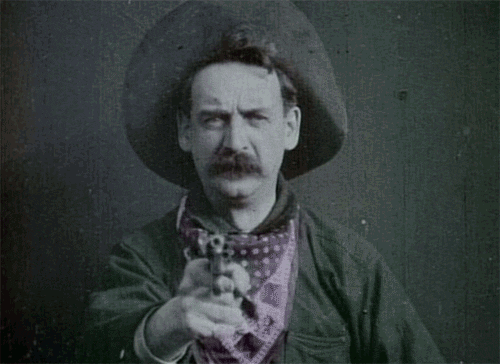
Movies I watched this week (#173):
3 by young Chinese prodigy Gu Xiaogang:
🍿 Even though Dwelling in the Fuchun Mountains is his first (and only) feature so far, it feels so mature, as if an old master put it out after a long and successful career.
It's an slow epic saga (2.5 long hours) of a large family struggling during four seasons through life's ups and down in this provincial city. It's a metaphor for a classic scroll painting from the 14 century, and apparently only the first chapter in an upcoming trilogy. A tremendous, slow-moving achievement told in magnificent style, and half a dozen transcendental set pieces. 10/10 - Best experience of the week!
I was steeped in that Chinese mentality and culture, that of practicality, resourcefulness, tradition and hope, for nearly a decade, and I miss it. 💯 score on Rotten Tomatoes.
🍿 The Sail of Cinema (2020), a beautiful mood piece which can be used as a perfect introduction to his work. Bonus points for use of 'Moonlight Sonata'. 10/10.
🍿 As Spring Comes Along (2024), a short art poem about a couple who hasn't seen each other for a long time.
🍿
Menashe (2017) is one of the few films in Yiddish that I've seen (Not too many of them, eh?). A24 indie production from 2017 about a Hasidic widower, struggling to keep his 10-year-old son with him, within the restrictive ultra-orthodox Jewish community in Brooklyn.
I dislike all religions equally (Well, some more than others...) but this is an uncritically and authentic beautiful piece of film making. Especially since the 'hero' is an unlikely ordinary man and he's not going to change. 8/10.
🍿
The Red Sea Makes Me Wanna Cry, my first film from Jordan. An enigmatic, nearly wordless story of a young woman who travels to the desolate outskirts of Aqaba in search of Ismail who had disappeared without explanation. 6/10.
🍿
10 more selections from the US National Film Registry, all seen for the first time:
🍿 Newark Athlete is the earliest film in the collection; a 12 second silent short from 1891, produced at The Edison Studio.
[ Also, The "Phonautograms" recordings by Edouard-Leon Stott de Martinville, the earliest known sound recording from 1853!]
🍿 The Corbett-Fitzsimmons Fight, a 1897 documentary of a championship prizefight boxing match, which took place in Nevada. At over 100 minutes, it was the world's first (and longest) feature film. But only 19 minutes survived today.
🍿 The classic The Great Train Robbery (1903), my first film by Edwin S. Porter, director of over 250 silent films. A "sensationalized Headliner", which included a separate close-up shot of the outlaw leader shooting directly at the camera. My r/todayilearned post: After retiring from the movies, the actor who played the lead robber, (Photo Above) became a milkman. 9/10.
🍿 First viewing of Gone with the wind was not what I expected! I knew it was a bloated confederacy 'Lost Cause' fanfiction and a revisionist myth-making, glorifying slavery and the fantasy of the antebellum South. But I also thought it was the 'greatest love story of all time', and that was harder to get. Scarlett O'Hara grew to become a strong woman with fierce survival skills, but she was so flawed; Vain, selfish, conniving and unscrupulous. Her lover and third husband, Clark Gable, was no hero either. Their tragic on-again off-again love story was a 4 hour long soap opera. The gorgeous cinematography and massive production were breath-taking though. 4/10.
🍿 All the King's Men, a fictionalized and badly-dramatized story about the corruption of power. A veiled story about populist Louisiana governor Huey Long, how he rose from humble ideological beginnings to become a power-hungry despot. 4/10.
My first film by Robert Rossen, who was blacklisted for being a communist sympathizer, but who later "named" 57 of his friends to Joseph McCarthy's HUAC. I need to watch 'The Hustler'!
🍿 "There are plenty of warm rolls in the bakery; stop pressing your nose against the window!"
Pillow Talk, a frothy romantic comedy with Rock Hudson and Doris Day. A charming story about two neighbors who have to share a party-line, a phone technology that is now all but forgotten. Like Ted Gioia, I love Doris Day's jazz singing, so in spite of the out-dated genre politics, I found this light-hearted movie lovely and enjoyable.
🍿 Saul Bass was world-famous for his astounding graphic designs and inventive title sequences. But he also directed a few films, one of which, Why Man Creates, won the 1968 Oscar for Short Documentary. It's a whimsical plaything, with Bass's geometrical genius and good-nature foolery on display. Strong whiff of Terry Gilliam wildness and style. George Lucas was an un-credited second unit cameramen on the film. 🍿 Quasi at the Quackadero, a home-made 'Yellow submarine' inspired psychedelic short, about 2 ducks and a robot at an amusement park. Made by a 'Sesame Street' animator, it's like Max Fleischer on acid. M'eh. [*Female Director*].
🍿 Before Stonewell, an informative 1994 documentary about how gay people existed before the Stonewall riots. Fascinating, even if you knew much of it. Oppression, hatred, uprising. [*Female Director*].
🍿 Scratch and Crow was a symbolic, non-narrative word-less art-short by an indie artist, Helen Hill, who was murdered at 36 in New Orleans. [*Female Director*].
🍿
4 Documentaries:
🍿 City of Gold, my first atmospheric documentary by Canadian Colin Low. A pleasant nostalgic trip back to the small Yukon town of Dawson City, which for one summer in 1895 was the center of the Klondike Gold Rush. Its slow panning style, overlapped with soothing narration, inspired Ken Burns to develop his famous 'Ken Burns Effect'. Winner of the 1957 Cannes Festival, and nominated for an Oscar. 9/10.
🍿 A day in Tokyo was created in 1968 by the Japan National Tourism Organization to promote tourism in the rebuilt city. It captured the time, 23 years after it's destruction, when it was ready to take its place as the primer metropolis of the world. It tells of its history from the Edo period until then, (but it doesn't mention the war).
🍿 "He articulated what the rest of us wanted to say, but couldn't say..."
When Martin Scorsese kicks the bucket, sometime in the near future, his obituaries will lead with 'Taxi Driver' and 'Raging Bull'. But besides his 27 features, his World Cinema Project, acting in commercials, producing, etc, he also directed 17 documentaries, including 5 excellent music docs, all about "our" sounds and times, and "our" heroes.
No direction home: Bob Dylan (2005) is centered on a lengthy interview Scorsese did with the 'bard' about his early years, leading up to his 1966 bike accident. Re-Watch ♻️. Here's my 2003 "Grow-a-brain" Bob Dylan link-blog.
🍿 Related: Joan Baez: I am a noise is her recent biography, embarking on her career-ending tour at 79, while reflecting back to a full life of peaks and traumas. I loved her music deeply all my life (her, as well as her beautiful sister Mimi!), and she always meant so much to me.
And of course, I will always remember the time on June 11, 1984, when I met her walking down the street, and she kissed me on the mouth... [*Female Director*].
🍿
"Would you like to come in for a cup of tea - or perhaps something stronger?..."
Return to Glennascaul (1951) is a spooky Irish ghost story, framed and narrated by Orson Welles, as he picks up a stranded motorist on a dark and (not) stormy night on his way to Dublin...
🍿
Re-watch: Laurel and Hardy classic The Music Box, (1932). These two numbskulls never learn. 9/10. ♻️
🍿
2 by Argentinian Mario Soffici:
🍿 Italian-born Soffici directed some of the highest rated Argentinian films of the classic era.
His Rosaura at 10 O'Clock (1958) is a strange crime drama with a story that changes so much, that it's hard to know what is true and what fiction. It takes place at a boarding house, where a shy painter starts getting perfumed love letters, and the nosy owner who meddles in his affairs. It turn out to be nearly like 'Rashomon', where everybody has their own story. There's one violent scene where a pimp beats up a woman brutally and unexpectedly.
🍿 For many decades, Prisoners of the Land (1939) was considered as the "Greatest Argentinian movie". It's a tragic revenge story about peasants fighting a cruel plantation owner in the jungles of 1915, a drunk doctor and his beautiful daughter. Very John Huston and South American Herzog-like in sweaty, feudal nightmares of whip lashing and booze.
🍿
Another film from Argentina, Viruta, is a high-production home movie made by a woman named Otilia Shifres. Her grandparents emigrated to Buenos Aires from Grodno, a small town in Poland, at the turn of the 20th century. In the film she searches for and constructs a family tree of the relatives that were left behind, going all the way to 1770. It's impressively slick for an amateur feature-length project.
The only reason I came across this personal documentary is because my own father, Eli, (who died in 2016 in Israel at the age of 90) is one of the relatives whom she discovers, and my two sisters even make an appearance in the film (at 56:00) telling her about our side of the family! [*Female Director*].
🍿
"Why don't you study a blank piece of paper for a while, and improve your mind?..."
Ready, willing and able (1937), a second-rate Broadway-style song-and dance musical, trying to emulate the finesse of better talents (like Fred Astaire and Ginger Rogers). But this un-charismatic movie is the one which introduced the Johnny Mercer song 'Too Marvelous for Words', and it ended with The fantastic Typewriter Dance, an over-the-top Busby Berkeley style number.
🍿
Alan Partridge: Alpha Papa (2013), my first film with the cringey wanker character of Alan Partridge. It opens with the Philip Glass Koyaanisqatsi theme, which was nice, but the pompous, misogynistic radio host asshole didn't resonate with me. 3/10.
🍿
Throw-back to the Adora Art project:
Adora as Bob Dylan and with Suze Rotolo.
Adora with my sister, Dafna.
🍿
(My complete movie list is here)
5 notes
·
View notes
Text
MOVIE REVIEW | I am Cuba (1964)

A political epic written as a poem following three different but interconnected stories that perfectly show the reality of a country and its people, outside and away from the nightclubs, music and casinos. This movie is a very much a product of its time and it perfectly portrays a country in the verge of revolution. The filmmaking style is almost documentary-like.
The first act follows a young woman working the night in La Havanna’s clubs where many North Americans used to spend their time.
The second act tells the story of a sugar cane farmer, his family, and their relationship to the earth they work for a living and as a life.
The final act portrays the tumultuous conflict between university students and the government.
This film was recently restored and added to the Criterion Collection. So it’s available to watch for the first time in more than three decades.
This was incredible watch for its themes and technical prowess, from cinematography to camera movement, and composition.
2 notes
·
View notes
Note
Olivia Rodrigo's shortlisted for an Oscar for Best Original Song. LFG!!! TS is gagging for that thing, imagine if she gets nominated and wins lol. The meltdown incoming. That girl could easily down the line go for an EGOT. She can make a documentary, host SNL or write a song for a TV series to win an Emmy and girlie pops has enough vocal and acting chops to star in a musical and go for a Tony. She's only gonna get better with time. I think Billie's gonna take it though. It would be the 2nd one for her. And Taylor's probably gonna go ahead and try to campaign her tour DVD for the Best Documentary next year (the eligibility period for this year ended on Oct. 2 and it also doesn't fall into eligibility rules).
The Special Rules Section, Part B, states: “Works that are essentially promotional or instructional are not eligible, nor are works that are essentially unfiltered records of performances.” -Variety
Wouldn't be surprised if the Academy caves in and changes current guidelines so the ratings go up. If they do, Beyonce's film also becomes eligible. I'm no Beyonce fan but I've seen both hers and Taylor's films and let me tell you, if there would be only 2 options to pick a winner, I'd blindly go for Beyonce's. The performance level is better, the cinematography and editing were better, sound was better, visual effects and lighting were better, styling was better, there was behind the scenes footage and a new song during the end credits. Taylor's film looked like it was done last minute and edited in a hurry on your mum's old laptop. No offense, babes but it wasn't your best work.
Ugh, the lady is so desperate for an EGOT that it's funny. You're no Viola Davis, JHud, Barbra, Liza Minelli, Rita Moreno, Helen Hayes or Audrey Hepburn. Those women are/were TALENTED. Well, Viola, Audrey and Helen Hayes don't/didn't sing but they won for spoken word aka voice acting. The only way for her to win a Tony would be writing a musical or a play. But to do that you have to have multiple writing tropes for more than 1 perspective. Her short film dialogues were trash, let's be real. I wonder what's gonna happen with her directorial Searchlight project. Sure, it'll make lots of money if we even see the day of its release but I doubt she'll be considered for any awards for that. The only options that'll happen are a. to get the ratings up b. for shits and giggles. The only theatrics she can pull off are her childish tantrums in the media and shocked expressions at award shows/TK's throwball games. And even for that she has to have some liquid courage in her system otherwise she's as bland and pasty as they come. Poor thing, even with all that money and fame she still has no rizz.
Anyway, 2024 is new gen's pop girls' year and you can't convince me otherwise. Dua and Billie have new albums coming, Olivia's going on tour, Tyla's on the rise. Hoping for the OR sweep at the Grammys as well. LFG!
p.s Dr. Bridgit Mendler's the main Disney girl
.
15 notes
·
View notes